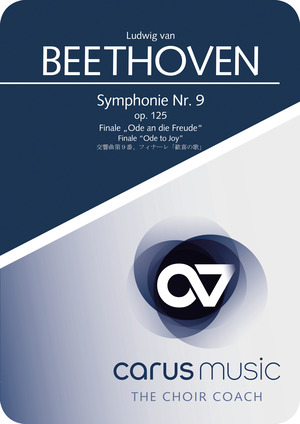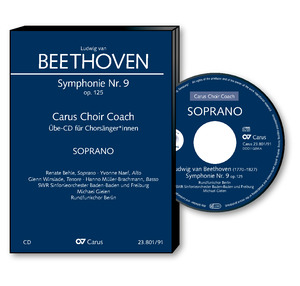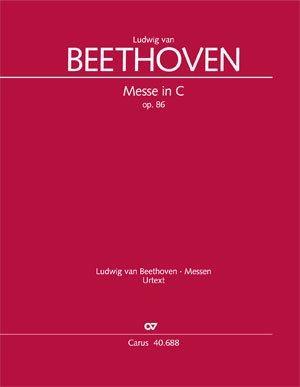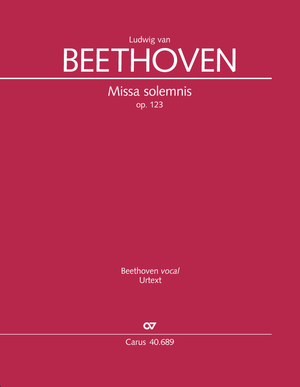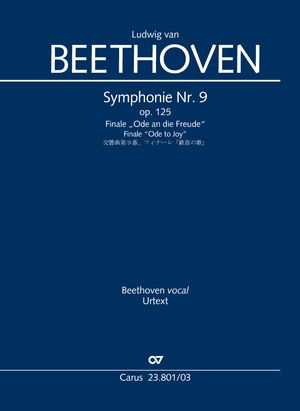
It’s about 200 years since Beethoven scribbled down a theme in D minor in his sketch book, which he later used, slightly altered, in the 2nd movement of his 9th Symphony. Beethoven had thought of setting Schiller’s “Ode to Joy” much earlier. As early as 1803 Ferdinand Ries mentioned a complete setting of the text by Beethoven which no longer survives. The vocal score of the finale of the 9th Symphony is based on the vocal score made by Carl Reinecke around the end of the 19th century. The version by Reinecke, popular worldwide, closely reflects the sound of the orchestral writing, yet at the same time is remains playable. Stefan Schuck has revised this historic vocal score, in the process taking into account recent research findings. The new Carus vocal score contains rehearsal letters from all current versions of the orchestral material, and is thus compatible with all available music editions. In the presentation of this edition, particular attention has been paid to the practical needs of (choral) singers and répétiteurs.
-
Composer
Ludwig van Beethoven
| 1770-1827Ludwig van Beethoven was without doubt one of the most influential composers in the history of music. His works formed the culmination of many genres – particularly instrumental – of Viennese classicism, and laid the foundation for the following decades. But Beethoven’s vocal works set standards too: the late Missa Solemnis is one of the most impressive choral works of its time; but his earlier Mass in C also opens up new worlds of expression for the liturgical text, and set the benchmark for the further development in the composition of the mass. And with the final chorus of the Ninth Symphony, the setting of Schiller’s Ode to Joy, Beethoven created one of the most frequently-performed and best known choral pieces of all, writing a timeless musical memorial to himself. Personal details
-
Editor
Stefan Schuck
| 1963
-
Songwriter / Librettist
Friedrich Schiller
| 1759-1805
Reviews
Stefan Schuck hat diesen historischen Klavierauszug überarbeitet und dabei auch aktuelle Forschungsergebnisse berücksichtigt.
Toccata 11/12.2015
... Der auf dem gängigen Material Carl Reineckes beruhende Klavierauszug wurde u. a. an einzelnen Stellen für den Pianisten erleichtert, die Bögen der Vokalstimmen wieder vom Beethovenschen Urtext übernommen. Der Begeisterung asiatischer Sängerinnen und Sänger trägt diese Ausgabe durch den Abdruck des deutschen Textes mit darunter stehender Lautschrift Rechnung.
Musica sacra, September/Oktober 2015
... Besonders erfreulich ist, dass die Edition die unterschiedlichen Probebuchstaben der gängigen Editionen anführt, was die „Bedienfreundlichkeit” des Klavierauszugs deutlich erhöht.
Andreas Peterl, Singende Kirche, September 2015
Frequent questions about this work
 There are no questions and answers available so far or you were unable to find an answer to your specific question about this work? Then click here and send your specific questions to our Customer Services!
There are no questions and answers available so far or you were unable to find an answer to your specific question about this work? Then click here and send your specific questions to our Customer Services!


